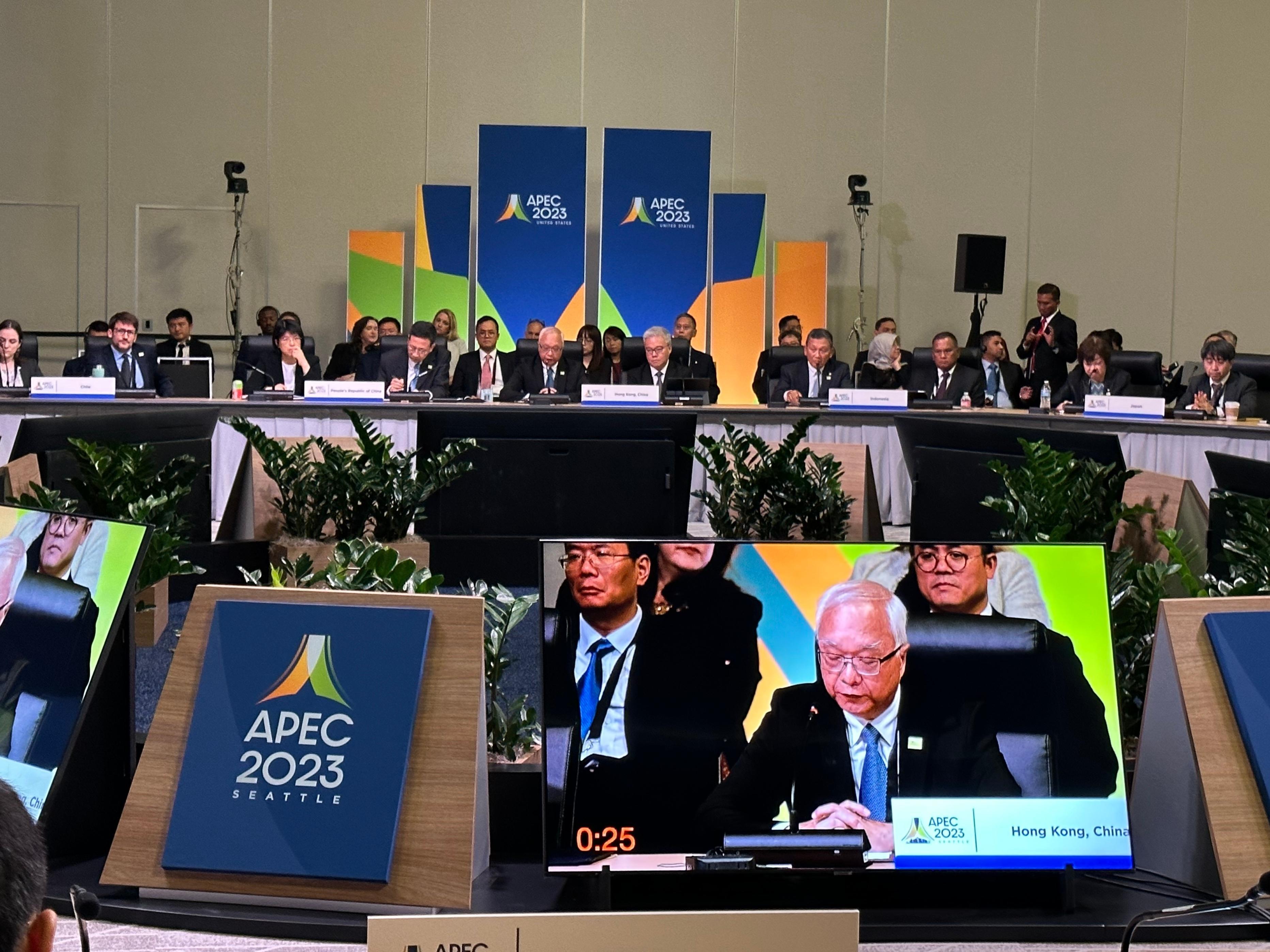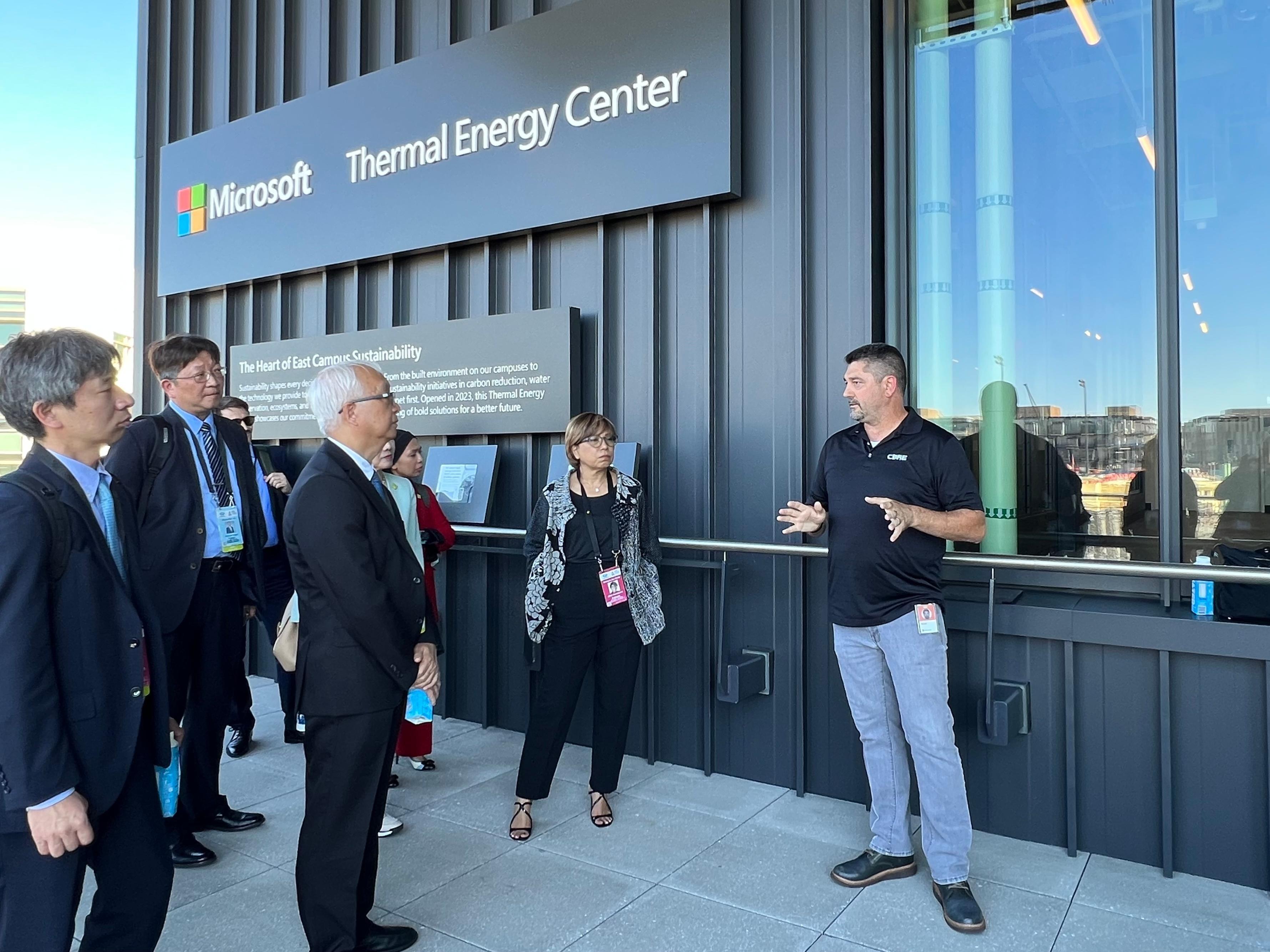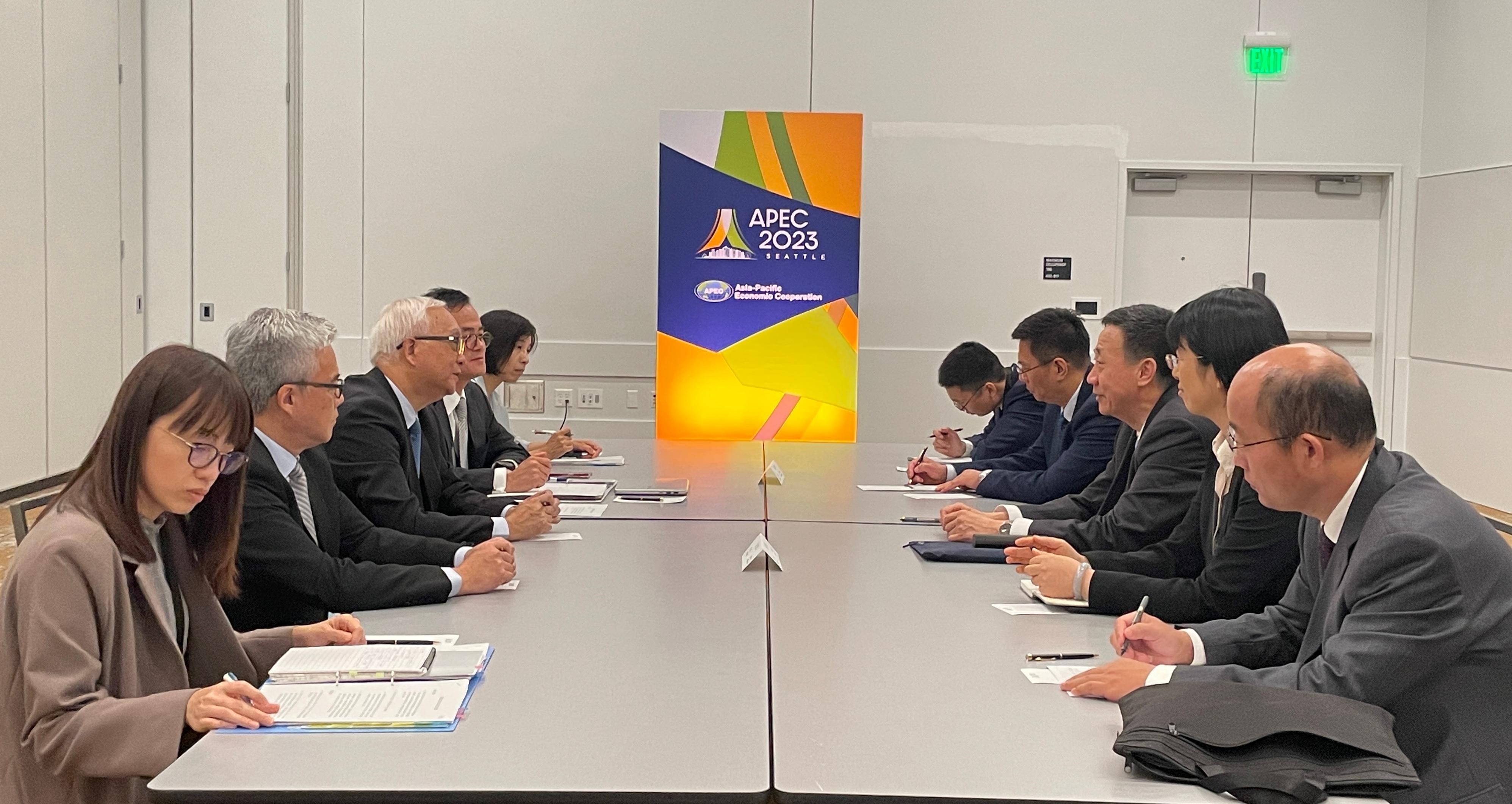 Secretary for Environment and Ecology Tse Chin-wan (fifth left) speaks at the opening plenary of the Asia-Pacific Economic Cooperation Energy Ministerial Meeting held in Seattle, the United States, on Aug 16, 2023. (PHOTO / HKSAR GOVERNMENT)
Secretary for Environment and Ecology Tse Chin-wan (fifth left) speaks at the opening plenary of the Asia-Pacific Economic Cooperation Energy Ministerial Meeting held in Seattle, the United States, on Aug 16, 2023. (PHOTO / HKSAR GOVERNMENT)
HONG KONG – Hong Kong is stepping up its campaign to achieve carbon neutrality and has earmarked HK$240 billion ($30 billion) to fight climate change in the next two decades, Secretary for Environment and Ecology Tse Chin-wan said Wednesday.
Speaking at the opening plenary of the Asia-Pacific Economic Cooperation (APEC) Energy Ministerial Meeting in Seattle, the United States, Tse said the city is also striving to increase the use of zero-carbon energy and its share in electricity utilization to around 60 percent to 70 percent before 2035.
Speaking at a discussion session on power sector decarbonization at the APEC ministerial meeting, Tse noted that President Xi Jinping has made it clear that China would endeavor to achieve the peak of carbon emissions before 2030 and carbon neutrality before 2060
“Achieving carbon neutrality in less than 27 years is an extremely challenging ambition. The importance of regional and global collaboration cannot be overstated in our carbon neutrality journey,” Tse said.
“Hong Kong, China will continue to sharpen our own policies, step up actions in combatting climate change, and welcome collaboration with APEC economies to shape a greener tomorrow,” he added.
Tse noted that APEC's Energy Intensity Reduction Goal is to reduce APEC's aggregate energy intensity by 45 percent by 2035, against the 2005 level.
ALSO READ: Hong Kong strives to achieve carbon neutrality by 2050
“Thanks to the concerted efforts of the community, so far, the energy intensity in Hong Kong, China has decreased by over 30 percent,” he said.
Tse said the special administrative region has four major decarbonization strategies: net-zero electricity generation, energy saving and green buildings, green transport, and waste reduction.
Speaking at a discussion session on power sector decarbonization at the ministerial meeting, Tse noted that President Xi Jinping has made it clear that China would endeavor to achieve the peak of carbon emissions before 2030 and carbon neutrality before 2060.
“As to Hong Kong, China, our carbon emissions peaked in 2014. Hence, our targets are to cut our carbon emissions by half before 2035, and achieve carbon neutrality before 2050. At the moment, the carbon emissions have been reduced by about one quarter below the peak,” he said.
ALSO READ: Finance chief: HK keen on fighting climate change
Tse said power companies have not been allowed to build new coal-fired generating units since 1997 and are required to replace coal with cleaner fuels.
“As a result, the share of coal has dropped to about a quarter of the fuel mix in 2022. For the rest of the fuel mix, about half is natural gas while slightly more than a quarter is nuclear and renewable energy,” he said.
 Secretary for Environment and Ecology Tse Chin-wan (third left) visits the Microsoft Thermal Energy Center to learn about the latest new energy developments in the US, where he is attending the Asia-Pacific Economic Cooperation Energy Ministerial Meeting, on Aug 16, 2023. (PHOTO / HKSAR GOVERNMENT)
Secretary for Environment and Ecology Tse Chin-wan (third left) visits the Microsoft Thermal Energy Center to learn about the latest new energy developments in the US, where he is attending the Asia-Pacific Economic Cooperation Energy Ministerial Meeting, on Aug 16, 2023. (PHOTO / HKSAR GOVERNMENT)
Tse said the two power companies in Hong Kong have developed and constructed a new offshore liquefied natural gas terminal “within our waters with the world's largest floating storage and regasification unit to provide cleaner, more reliable and diverse energy supply”.
He said the city is planning to install a five megawatt floating solar power system at a reservoir and introduce highly efficient storage battery technology while allocating HK$3 billion to install small-scale renewable energy systems at government premises.
“Renewable energy features have also been applied in the design of public housing estates, which accommodate half of our population,” Tse said.
READ MORE: HK sets new climate disclosure rules, aligns with global standard
He said it is important to ensure that Hong Kong enjoys a reliable and safe energy supply at reasonable prices as it decarbonizes its power sector.
“At the moment, nuclear energy imported from the mainland accounts for about a quarter of our fuel mix for electricity utilization. It has been proven to be a critical stabilizing factor in electricity tariffs,” Tse said.
“Looking to the future, we are exploring collaboration with neighboring regions in zero-carbon energy projects, as well as planning the construction of large-scale electricity facilities for receiving and processing zero-carbon electricity transmitted from other regions. These will help us achieve the interim target to reduce carbon emissions by half before 2035,” he added.
 Secretary for Environment and Ecology Tse Chin-wan (third left) meets with Deputy Director of the National Energy Administration Ren Jingdong (third right) to exchange views on strengthening regional cooperation at the Asia-Pacific Economic Cooperation Energy Ministerial Meeting in Seattle, United States on Aug 15, 2023. (PHOTO / HKSAR GOVERNMENT)
Secretary for Environment and Ecology Tse Chin-wan (third left) meets with Deputy Director of the National Energy Administration Ren Jingdong (third right) to exchange views on strengthening regional cooperation at the Asia-Pacific Economic Cooperation Energy Ministerial Meeting in Seattle, United States on Aug 15, 2023. (PHOTO / HKSAR GOVERNMENT)
Tse also visited new energy facilities arranged by the host economy, including the Microsoft Thermal Energy Center and a carbon reduction company to learn about the latest new energy developments in the US.
On Tuesday, Tse had a side meeting with Deputy Director of the National Energy Administration Ren Jingdong to exchange views on strengthening regional cooperation.


